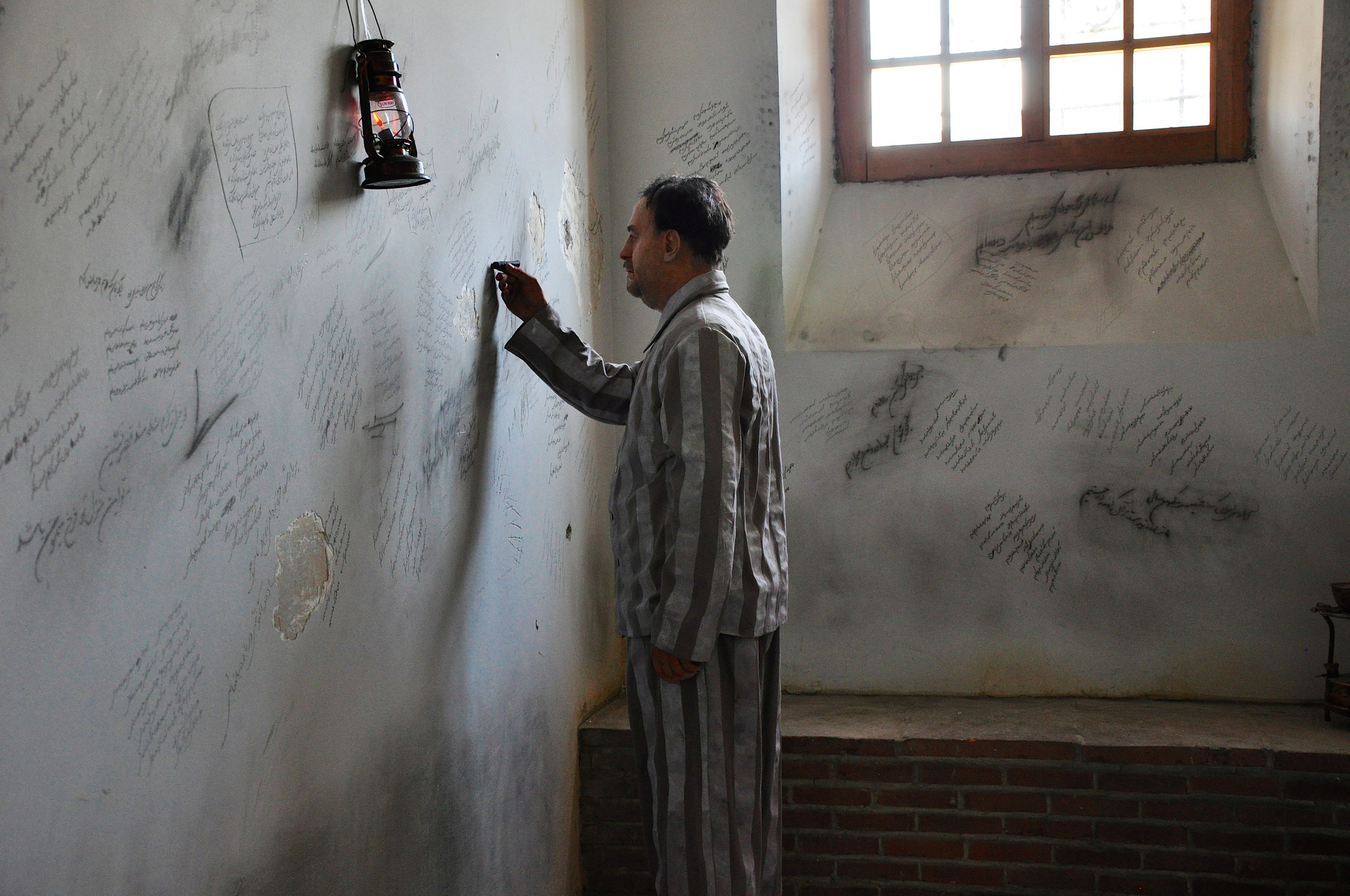
Image of “Symbolic Prison Cell” in Iran from Babak Farroki. Image taken from Flickr under CC By 2.0.
A version of this article was originally published on the site of the International Campaign for Human Rights in Iran.
After serving a five-year prison sentence in Iran for posting jokes about religion on Facebook, Soheil Babadi has been forced into internal exile. The 39-year-old computer engineer, who previously lived in Tehran, must now spend the next two years in Beshagard, a remote community of 35,000 people in the southern coastal province of Hormozgan. Beshagard is located on the southern tip of the country, about a 20 hour drive from Babadi's hometown in the north.
“Court documents said Soheil’s sentence should have ended in July 2015, but despite all our efforts he wasn’t freed,” said the source. “Finally, Soheil himself filed a complaint against the judge and then they let him go (into exile).”
In an open letter dated September 7, 2013, Babadi said he was tortured while being interrogated by the Islamic Revolutionary Guards Corps (IRGC).
“In May 2011 I posted ten short pieces of satire on a Facebook page called the ‘Campaign to Remind Shiites about Imam Naghi’ without using any insulting words,” said the letter. “A year later I was arrested by the IRGC’s Intelligence Organization without a warrant and held in Ward 2-A, the IRGC’s exclusive detention center, and beaten and interrogated for 24 hours.”
“Then someone named Ghena’atkar (from Branch 3 of the Security Court) formally read the charges against me, including ‘insulting the Prophet Mohammad,’ ‘insulting the sacred,’ ‘assembly and collusion,’ ‘insulting the supreme leader,’ ‘propaganda against the state,’ ‘membership in a group planning to overthrow the state’ ‘and acting against national security’—all for writing ten jokes on Facebook,” he added.
He continued: “I was interrogated while blindfolded in the corner of a room,” he continued. “The agent wanted me to confess to the charges against me, and when I refused, he severely beat me. I was constantly under psychological pressure as the agents probed into my personal life and tried to accuse me of sexual relations with friends and relatives, even with my sister-in-law, and even of homosexual relations with one of my friends, Mostafa. But they didn’t succeed and kept me in solitary confinement for 225 days.”

Soheil Babadi meets his family after leaving prison in Tehran. He is now starting exile in. Photo from the International Campaign for Human Rights in Iran and used with permission.
Babadi was taken from Rajaee Shahr Prison in Karaj on January 28, 2016 to a police detention center and held for three days before being transported to Beshagard to begin the remainder of his sentence.
Babadi was arrested in 2012 after the Facebook posts, which satirized political and religious issues while focusing on Ali al-Naghi—the tenth Imam according to Shia Islam. The page, which has nearly 33,000 fans, gained popularity after the song “Naghi” by musical artist Shahin Najafi went viral in early May 2012 and at least two senior theologians issued fatwas calling for Najafi’s death for insulting Naghi.
Babadi was first charged with “insulting the sacred” and “insulting President [Mahmoud Ahmadinejad],” and sentenced to five-and-a-half years in prison, 74 lashes and two years in exile in the city of Beshagard near the southern port city of Bandar Abbas.
In a second trial in September 2015 Judge Mohammad Moghisseh of Branch 28 of the Revolutionary Court sentenced Babadi to an additional seven years in prison for “assembly and collusion against national security” and “insulting the supreme leader.” Branch 26 of the Appeals Court has yet to issue a verdict on the appeal against Babadi’s sentence.
See the Campaign's previous article on Babadi's case here.







